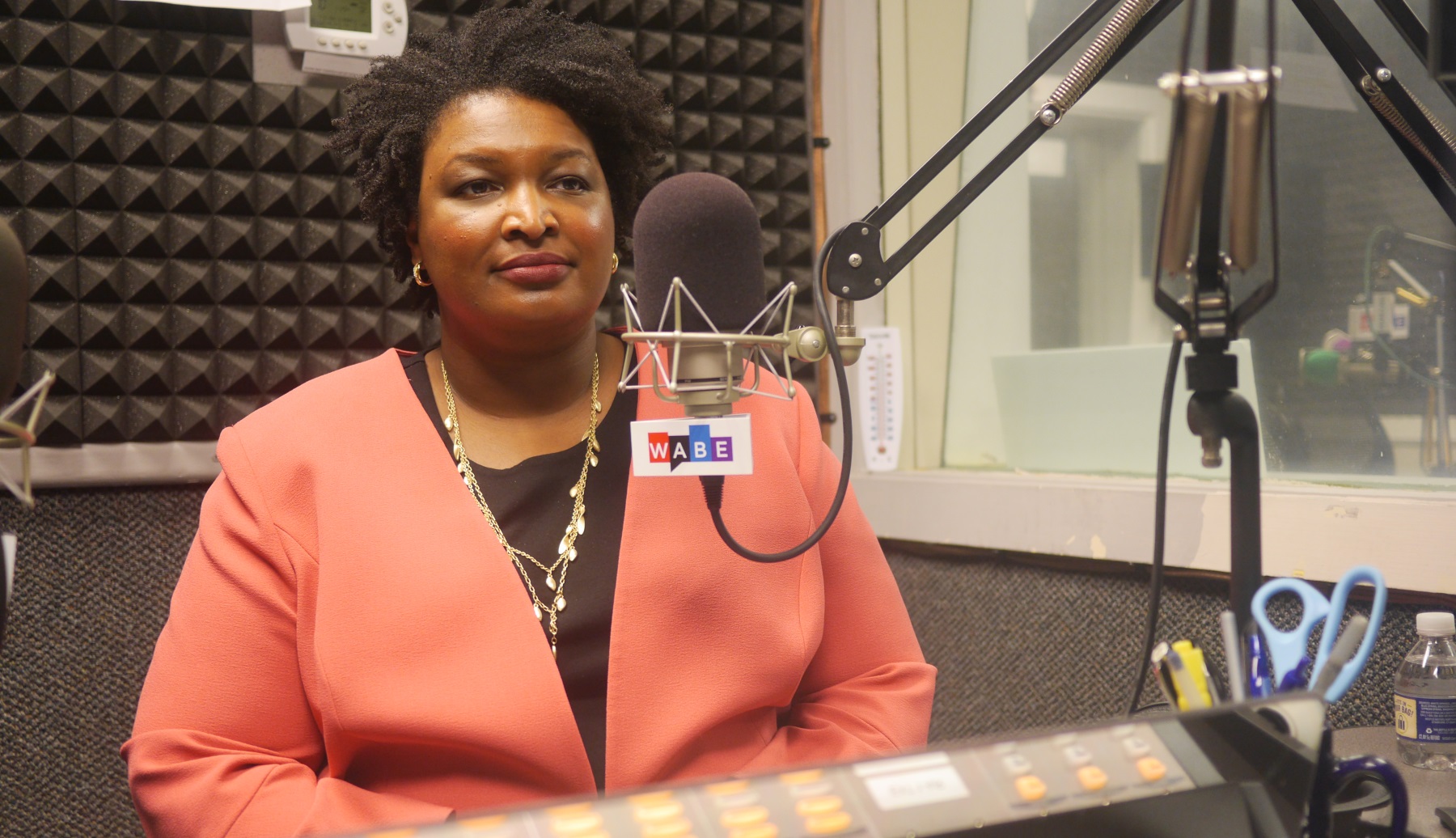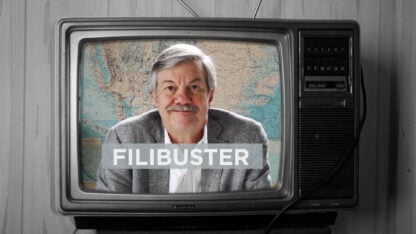Meet Democratic Gubernatorial Candidate Stacey Abrams

Democrat Stacey Abrams, a candidate for governor of Georgia, spoke with “Morning Edition” host Denis O’Hayer on March 22.
Sam Whitehead / WABE
In the lead up to the May 22nd primary elections, “Morning Edition” will feature conversations with the major party candidates for governor of Georgia. Democrat Stacey Abrams joined Denis O’Hayer on March 22nd.
Abrams is the former state House Minority Leader, and was first elected to the House from an Atlanta district in 2006. Prior to that, she was a deputy Atlanta City attorney.
Get more information about Georgia’s candidates for governor >>
On how Georgia will pay for some of her campaign priorities, like criminal justice reform and Medicaid expansion
The question is not: ‘Do we have the resources?’ It’s: ‘How are we allocating them?’ You begin by looking at tax loopholes that we already have, but you also look at places where we are spending money within a category. My goal is to shift how we spend those dollars.
On which specific tax loopholes she’d close
One of the pieces of how we’re going to approach this is having a conversation with the state. But we do know that if you look at bipartisan reports on tax accountability, that these loopholes exist. So instead of saying that I’m going to wholesale cut an entire line item, my point is that we need to look at how effective these tax credits are and reassess and reallocate those resources.
On whether the Governor’s office should lead a state-wide push for public transit
Transit is not about one individual or a single community. Transit is about our obligation to move people towards jobs, towards their needs. Public transit is a necessary part of a transportation infrastructure, and therefore the state should have the responsibility to set priorities and say we’re going to do this across the state.
On handling local opposition to a state-run transit initiative
The state has abdicated its responsibility for decades, and the state has to come to the table with resources. I strongly believe in local control. We can have both local engagement and state investment and achieve our purposes. You set mandates for what has to be done. So, for example, that local authority can’t refuse public transit, but it can decide where it goes and how deep into a community it goes.
On reforming the Georgia’s state teacher pension system in the face of escalating financial costs
I do not agree with the notion that we have to substantially reform our state pension system. The money exists. The question is priorities: how do we want to allocate those dollars? And we are going to have to cut in other places until we as a state decide how we want to approach large-scale changes to our tax system. The answer is not to break our contract with our teachers and take away what we’ve guaranteed them for their pensions.
On whether Georgia should sue drug manufacturers in its fight against the opioid crisis
I believe that we should pursue every legal remedy to limit access to drugs that should not be coming in simply because it’s for profit motive. But I will say this: we have to have a broader conversation about substance abuse in the state of Georgia, because substance abuse is a challenge that is decimating our communities, and we all should be a part of that conversation.
On expanding drug prevention and mental health treatment programs
If we accept Medicaid expansion, and we draw down the $30 billion [from the federal government] to which the state is entitled over the next seven years, we will have the money to build out an infrastructure in the state of Georgia–across the state–that can address both mental health issues and substance abuse treatment.
On expanding Medicaid
My mission is for us to actually draw down the $30 billion [from the federal government] over the next seven years to which we are entitled that can help undergird the system and help us build it out. The federal government will participate at the level it’s responsible, as long as we hold them accountable.
On decriminalizing the possession of small amounts of marijuana
I believe that decriminalization of marijuana possession is a critical step to criminal justice reform. Often the people who are accused of those crimes tend to be low income, tend to be people of color. It makes it difficult for them to get jobs, difficult for them to be productive members of society, and it does not make our communities safer.
On the bipartisan effort in 2011 to make changes to the HOPE Scholarship when lottery funds failed to keep up with demand
We were in the midst of an economic recession that was going to cripple access to education. And I did what any good leader does. I saved as many people as possible and got them as much as I could, and then I got to work getting more done.
On what efforts from Gov. Nathan Deal she’d preserve and change
I am extraordinarily proud of the work that Governor Deal has done on criminal justice reform, and I think we have to continue that work. I’m also deeply proud of the work that he helped me do with kinship care, moving resources into those families. I disagree with him wholeheartedly on the immigration legislation that has moved through the legislature, and I disagree with him on how he has addressed reproductive health. We have too many laws that have passed that have unfortunately harmed the ability of women to have access to care. And I would oppose those.
Listen to the full interview below








